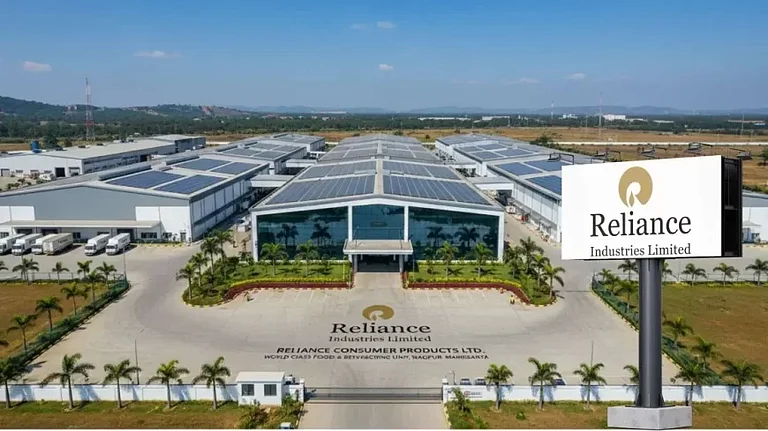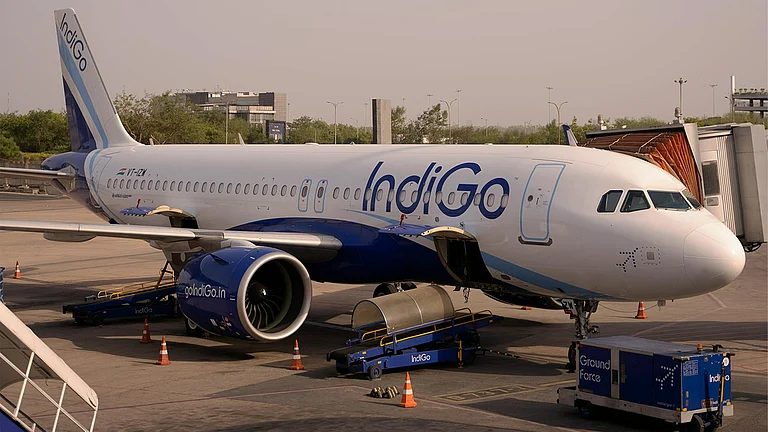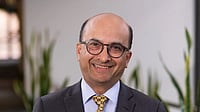
ASG Eye Hospital is planning a public listing “almost a year from now”, Chairman and MD Dr Arun Singhvi said.
The chain, which currently operates around 170 hospitals in 83 cities, aims to scale up to 600–700 centres.
It will add 5–7 new centres annually and acquire 8–10 niche practices in major metros, with its IPO team “ready”.
Jodhpur-based ASG Eye Hospital is preparing to go for a public listing “almost a year from now”, according to Dr Arun Singhvi, Chairman and Managing Director of the eye care hospital chain. He also said that the company will continue to expand with 5 to 7 centres every year. Currently, it has about 170 eye hospitals across 83 cities and plans to expand further to about 600–700 centres.
“We will continue to open 5 to 7 organic centres every year. Alongside this, we plan to acquire 8 to 10 niche practices annually in major metros,” Dr Singhvi told Outlook Business in an exclusive interview. He did not elaborate on plans for their initial public offering (IPO) but said “our team is ready”.
In 2023, the American private equity firm General Atlantic backed-firm acquired Vasan Healthcare through corporate insolvency resolution for ₹526 crore, which gave it access to over 150 eye care centres across southern India. Now, it is planning to acquire another eye centre speciality hospital chain.
“We will begin the process of acquiring another chain after resurrecting Vasan,” Dr Singhvi said, though he did not reveal the name of the chain.
When asked about the expected investment in these centres and the returns, he explained, “A full-function eye care centre typically requires 6,000 to 10,000 square feet, depending on the location. Setting up refractive, retina and diagnostic facilities along with a modular OT demands significant, long-term investment.”
The payback period is usually five to six years, which is standard across the industry, he added.
Private equity firms make up a majority of ASG Eye’s shareholders. The company’s shareholding structure includes General Atlantic holding 28.8%, Kedaara at 19.2%, Skyvision with 7.8%, Britten Holdings at 8.8%, and the Founder with 14.2% shareholding, according to data from Tracxn. The ESOP pool also accounts for 5.5% of the equity, while the remaining 15.7% is held by other shareholders.
In 2022, the company raised $188 million in Series D funding from institutional investors like General Atlantic, Kedaara, Foundation Holdings, Britten Holdings, among others.
“While numbers matter, there is also a larger mission. Alignment with private equity partners is crucial before they come on board. You must appreciate their investment, but also maintain transparency from day one about your goals,” he said.
Adding that ASG Eye needs investors who bring “more than money, support in digitisation, operations and overall improvement.”
When asked about private equity firms making major investments in the Indian healthcare sector, especially hospitals, Dr Singhvi said, “With private equity taking larger positions, they too are learning the ground realities. When they become majority stakeholders, they share responsibility for growth and must help strengthen the organisation.”
PE Firms’ Investment in Indian Hospitals
Today, several major Indian hospital chains have significant private equity backing, with many onboarding such investors in the last few years. Blackstone holds a majority stake in CARE Hospitals through its acquisition of Quality Care India Ltd, while Manipal Hospitals is majority-owned by Singapore’s Temasek, with additional investments from Mubadala, Novo Holdings and CalPERS.
Asian Institute of Nephrology & Urology (AINU) is backed by Asia Healthcare Holdings, which in turn is supported by global investors such as GIC and TPG.
Apax Partners previously held a notable stake in Apollo Hospitals, and Advent International is now reportedly exploring an investment in its digital arm, Apollo 24/7. Aster DM Healthcare is also significantly linked to private equity, with its India business merging with Quality Care India Ltd, which is backed by Blackstone and TPG. In the combined entity, Blackstone is set to hold around 30.7%.
“Today, most large hospital chains are largely owned by private equity players, making them co-promoters with real skin in the game. That’s actually a healthy sign,” according to the ASG Eye Hospital Chairman. He adds that “there’s a perception on social media that private equity has ‘taken over’ hospitals, but their majority ownership shows they are here to stay, not leave. They cannot exit for at least five to ten years. This trend has also drawn interest from sovereign wealth funds, which usually follow once private equity has invested.”
When asked if these investments also come with a cost bump for patients, he has a different perspective.
Dr Singhvi agrees that “costs have gone up across healthcare—consultations, surgeries, and procedures” but says that, according to him, this is because more people are able to pay through insurance.
“We still have a choice. Each of us decides how much of our resources we want to dedicate to healthcare for ourselves or our families. Earlier, options were limited, so care was relatively cheaper. Now, with better products and advanced treatments available, some services are costlier,” he added.
Demand for Quality Healthcare
Dr Singhvi further added that since Covid, many have realised the importance of health and the uncertainty of life, so they want the highest quality of treatment.
“Some have even developed a more consumer-driven mindset toward healthcare—thinking, for example, that if they can buy a new iPhone every year for a certain amount, why shouldn’t they spend a similar amount on a surgery that benefits them for life,” he explained.
Adding that there is also another segment which traditionally depended only on government hospitals, NGOs, camps or charitable institutions.
“Those volumes have now shifted to public-private partnerships because both state and central governments are funding treatments through Ayushman Bharat. This is driving higher patient volumes, while premiumisation and growing insurance penetration are driving value,” he added.
Dr Singhvi also emphasised the demand for quality care from Tier II cities, citing the example of Prime Minister Narendra Modi’s constituency, Varanasi. He said that soon after opening a centre there, the response was so “overwhelming” they had to open another hospital within 1 km, offering ₹10 OPD fees with the same doctors.


































